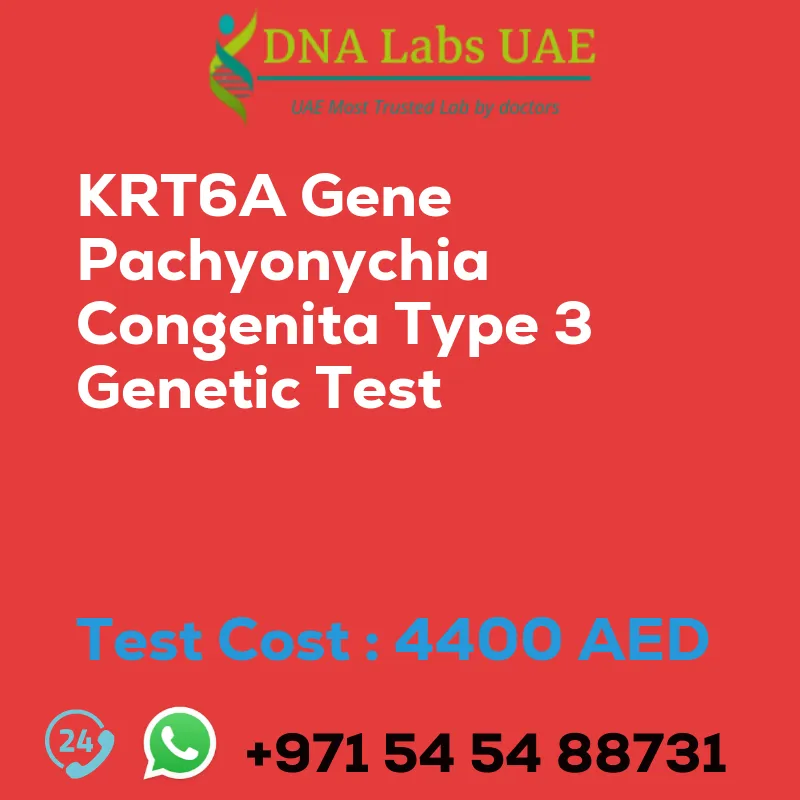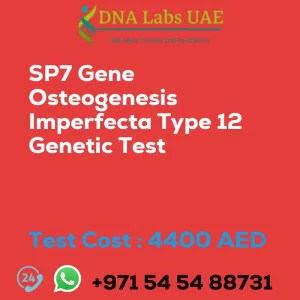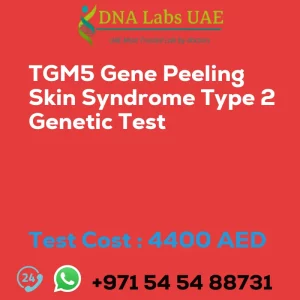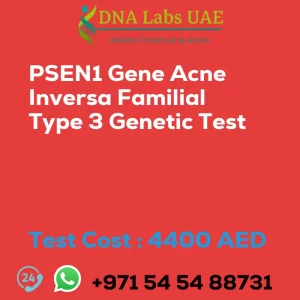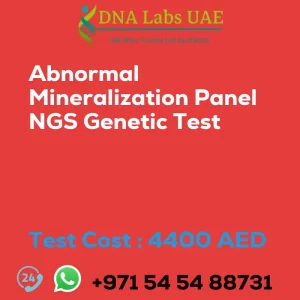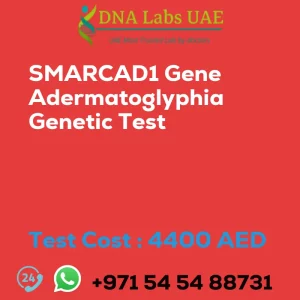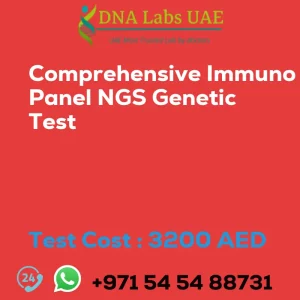KRT6A Gene Pachyonychia congenita type 3 Genetic Test
Test Name: KRT6A Gene Pachyonychia congenita type 3 Genetic Test
Components: Blood or Extracted DNA or One drop Blood on FTA Card
Price: 4400.0 AED
Report Delivery: 3 to 4 Weeks
Method: NGS Technology
Test type: Osteology Dermatology Immunology Disorders
Doctor: Dermatologist
Test Department: Genetics
Pre Test Information: Clinical History of Patient who is going for KRT6A Gene Pachyonychia congenita type 3 NGS Genetic DNA Test. A Genetic Counselling session to draw a pedigree chart of family members affected with KRT6A Gene Pachyonychia congenita type 3 NGS Genetic DNA Test gene KRT6A
Test Details: The KRT6A gene is associated with Pachyonychia congenita type 3 (PC-3), which is a rare genetic disorder characterized by thickening of the nails and other skin abnormalities. NGS (Next-Generation Sequencing) genetic testing is a type of genetic testing that uses advanced sequencing technology to analyze multiple genes simultaneously, providing a comprehensive assessment of an individual’s genetic makeup. In the context of PC-3, NGS genetic testing can identify mutations or variants in the KRT6A gene that may be responsible for causing the disorder. This testing can help confirm a diagnosis, provide information about disease severity, and guide treatment options. During the NGS genetic testing process, a sample of DNA is collected, usually through a blood sample or saliva sample. The DNA is then sequenced, and the resulting data is analyzed to identify any mutations or variants in the KRT6A gene. The results are interpreted by genetic specialists who can provide information about the significance of any identified genetic changes. It is important to note that NGS genetic testing may not be available in all healthcare settings, and the specific genes analyzed may vary depending on the testing laboratory. Additionally, genetic testing for PC-3 may not be necessary in all cases, and the decision to pursue testing should be made in consultation with a healthcare professional or genetic counselor.
| Test Name | KRT6A Gene Pachyonychia congenita type 3 Genetic Test |
|---|---|
| Components | |
| Price | 4400.0 AED |
| Sample Condition | Blood or Extracted DNA or One drop Blood on FTA Card |
| Report Delivery | 3 to 4 Weeks |
| Method | NGS Technology |
| Test type | Osteology Dermatology Immunology Disorders |
| Doctor | Dermatologist |
| Test Department: | Genetics |
| Pre Test Information | Clinical History of Patient who is going for KRT6A Gene Pachyonychia congenita type 3 NGS Genetic DNA Test. A Genetic Counselling session to draw a pedigree chart of family members affected with KRT6A Gene Pachyonychia congenita type 3 NGS Genetic DNA Test gene KRT6A |
| Test Details |
The KRT6A gene is associated with Pachyonychia congenita type 3 (PC-3), which is a rare genetic disorder characterized by thickening of the nails and other skin abnormalities. NGS (Next-Generation Sequencing) genetic testing is a type of genetic testing that uses advanced sequencing technology to analyze multiple genes simultaneously, providing a comprehensive assessment of an individual’s genetic makeup. In the context of PC-3, NGS genetic testing can identify mutations or variants in the KRT6A gene that may be responsible for causing the disorder. This testing can help confirm a diagnosis, provide information about disease severity, and guide treatment options. During the NGS genetic testing process, a sample of DNA is collected, usually through a blood sample or saliva sample. The DNA is then sequenced, and the resulting data is analyzed to identify any mutations or variants in the KRT6A gene. The results are interpreted by genetic specialists who can provide information about the significance of any identified genetic changes. It is important to note that NGS genetic testing may not be available in all healthcare settings, and the specific genes analyzed may vary depending on the testing laboratory. Additionally, genetic testing for PC-3 may not be necessary in all cases, and the decision to pursue testing should be made in consultation with a healthcare professional or genetic counselor. |

